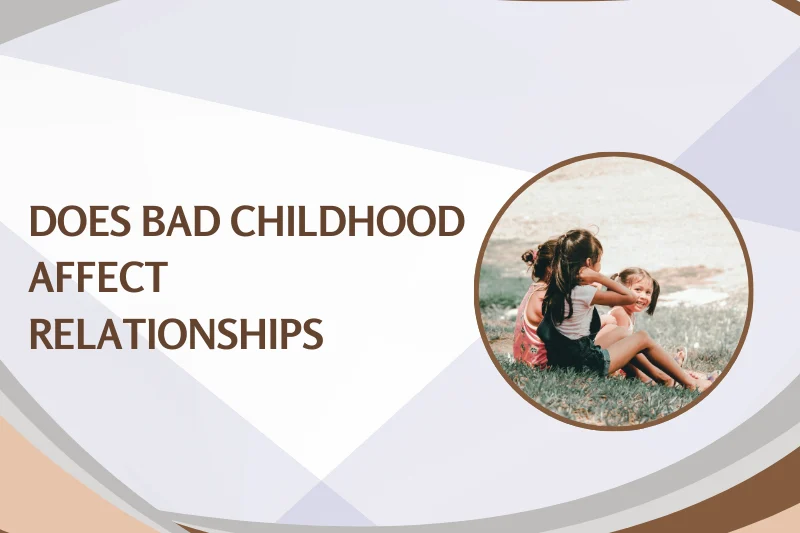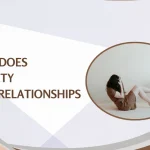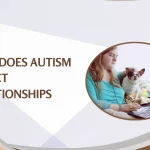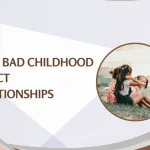Can our early years really shape our adult relationships? This question has puzzled many. Studies show that bad experiences in childhood can deeply affect our adult connections. But how does this happen, and can we overcome our past?
Discover how does bad childhood affect relationships and learn to recognize patterns that impact adult connections. Get insights into healing and building healthier bonds.
Table of Contents
Childhood Trauma and Its Long-term Effects
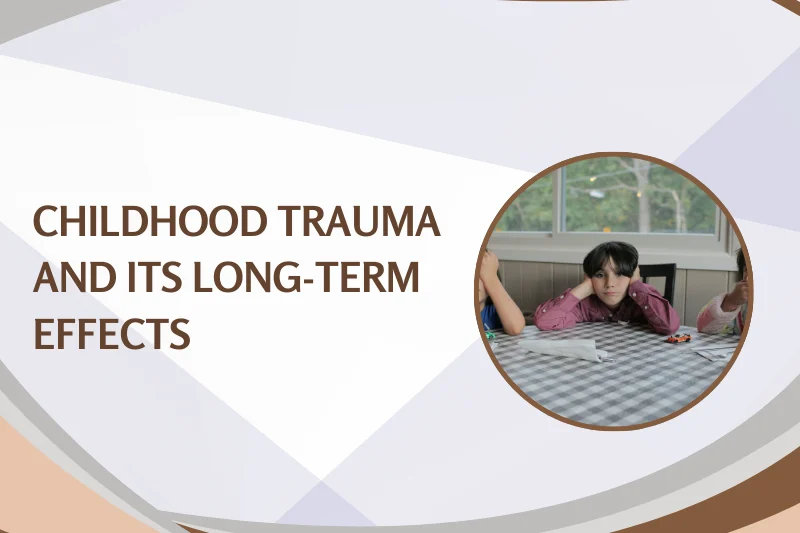
Childhood trauma includes many distressing experiences. These can be physical violence, sexual abuse, or natural disasters. It also includes losing loved ones, feeling abandoned, or being in foster care. Complex trauma, from repeated exposure, can be especially deep.
The age, intensity, and how long trauma lasts all matter. They affect how it changes a person’s growth and happiness.
Impact on Brain Development
Trauma can really change how a brain grows, especially in the first few years. Abuse, neglect, or other bad experiences can alter brain structure. This can affect how someone feels, thinks, and relates to others later on.
Emotional and Psychological Consequences
Childhood trauma’s effects can last a long time. People who were abused or neglected might find it hard to control their emotions. They may also struggle with trust and forming good relationships.
These early experiences can shape how they see the world and themselves. They might keep repeating patterns that aren’t healthy.
It’s important to set boundaries, know oneself, and get help. This can help break the cycle of abuse. It’s a step towards healing and forming better connections with others.
Read Also : Breaks Are Bad For Relationships
Does Bad Childhood Affect Relationships: The Scientific Evidence
Research is showing how our childhood can shape our adult relationships. Studies link bad childhood experiences (ACEs) to unhealthy adult relationships. This includes abuse or neglect.
A survey of 1,030 adults found a link between ACEs and mental health issues. Veterans and their partners with higher ACE scores had more depression and PTSD. They also felt less satisfied in their relationships.
Interestingly, female veterans felt more satisfied in their relationships when their partners had more ACEs. This might show a pull towards unhealthy but familiar relationships.

Childhood experiences deeply affect our adult relationships. People who faced adversity as kids might seek out unhealthy relationships. This is called “trauma reenactment.”
Attachment theory helps us understand how early relationships shape our adult relationships. It shows how our early bonds influence our ability to trust, be intimate, and solve conflicts.
Attachment Styles and Their Role in Adult Relationships
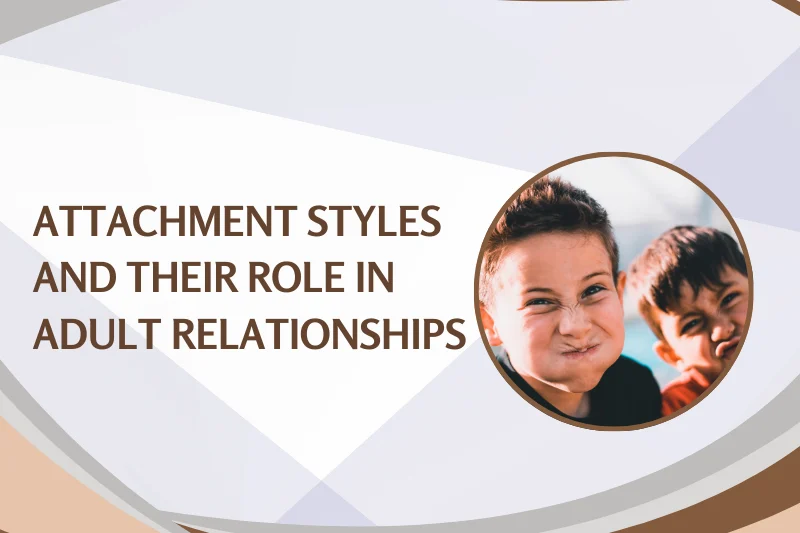
Attachment theory says our early bonds with caregivers shape our adult relationships. There are four main styles: secure, anxious, avoidant, and fearful-avoidant. Knowing these styles helps us understand our intimate connections better.
Secure vs. Insecure Attachment
Secure attachment means feeling safe and balanced in love. People with this style are happy in close relationships and know when to set boundaries. On the other hand, insecure attachment can show up as anxious or avoidant.
How Early Bonds Shape Future Connections
Our attachment style usually sets by age three, thanks to our early caregivers. Factors like a parent’s depression or trauma can lead to insecure attachment in kids. This can affect our adult relationships deeply.
Recognizing Your Attachment Pattern
Knowing your attachment style is key to better relationships. Anxious attachment means always seeking closeness and worrying about love. Avoidant attachment makes it hard to be close and prefers being alone. Spotting these patterns helps us aim for more secure and loving relationships.
Read Also : are aries loyal in relationships
Common Relationship Challenges Stemming from Childhood Experiences
Childhood trauma can deeply affect how we handle relationships as adults. People who faced hard times when they were young often struggle with trust issues, emotional intimacy, and emotional unavailability.
Those who were neglected, abandoned, or abused as kids might fear being hurt or rejected. This fear can lead to constant arguing, avoiding conflicts, or ending relationships too soon. They might also jump from one relationship to another, fearing vulnerability.
Childhood trauma also makes it hard to be emotionally close to others. Survivors might find it tough to share their feelings or trust their partners. This lack of closeness can make relationship problems worse and stop deep connections from forming.
To overcome these challenges, a mix of therapy, learning healthy coping skills, and working on trust and intimacy is needed. With effort, patience, and the right support, people can move past their past and build lasting, fulfilling relationships.
Trust Issues and Communication Patterns in Adult Relationships
Childhood trauma can deeply affect how we trust and communicate in adult relationships. Those who experienced abandonment, abuse, or neglect may find it hard to express emotions or trust their partners. Healing and building stronger connections start with breaking down these communication barriers.
Breaking Down Communication Barriers
People who faced childhood trauma often struggle to share their feelings and needs. They might hide their emotions or use indirect ways to communicate. This makes it hard to have meaningful talks with their partners. Learning to express thoughts and feelings openly, while listening and validating your partner, is key.
Building Trust After Trauma
Building trust after trauma takes time and care. Survivors may be slow to open up or feel vulnerable. It’s important for partners to be patient, consistent, and understanding. Setting clear boundaries, being reliable, and creating a safe space for emotions can help rebuild trust.
Healthy Conflict Resolution
Those with a history of trauma might shy away from conflict or get into frequent, intense arguments. Learning to resolve conflicts in a healthy way is essential. Skills like active listening, empathy, and compromise help navigate disagreements. This can lead to deeper intimacy and understanding in the relationship.
FAQ
How does bad childhood affect relationships?
A bad childhood can really mess with adult relationships. It can change how we trust and communicate with others. It also affects our emotional smarts. Early life experiences shape our views of the world and relationships.
What are the types of childhood trauma?
Childhood trauma includes many tough experiences. This includes physical and sexual abuse, natural disasters, and losing loved ones. It also includes being abandoned or living in foster care. Complex trauma, from repeated bad experiences, is especially hard.
How does childhood trauma affect brain development?
Childhood trauma can harm brain growth, especially in early years. The timing, intensity, and how often it happens all matter. It can have lasting effects.
What are the emotional and psychological consequences of childhood trauma?
Childhood trauma can lead to emotional and psychological issues. This includes trouble controlling emotions, trust problems, and challenges in forming good relationships.
Is there a link between childhood abuse and abusive relationships in adulthood?
Yes, research links childhood abuse to abusive adult relationships. Trauma from childhood can mess up trust and security. This is key for healthy emotional growth.
How do attachment styles influence adult relationships?
Attachment theory says adult bonds reflect early relationships. Secure attachment leads to open, trusting bonds. But insecure attachments can make adult relationships tough.
What are the common relationship challenges stemming from childhood experiences?
Childhood trauma can cause many relationship problems in adulthood. This includes fear of being left, trouble trusting, and issues with emotional closeness.
How can trust and communication be rebuilt in adult relationships after childhood trauma?
To improve communication, learn to express feelings and needs clearly. Rebuilding trust takes time, patience, and understanding. It’s important to learn how to handle conflicts well.
